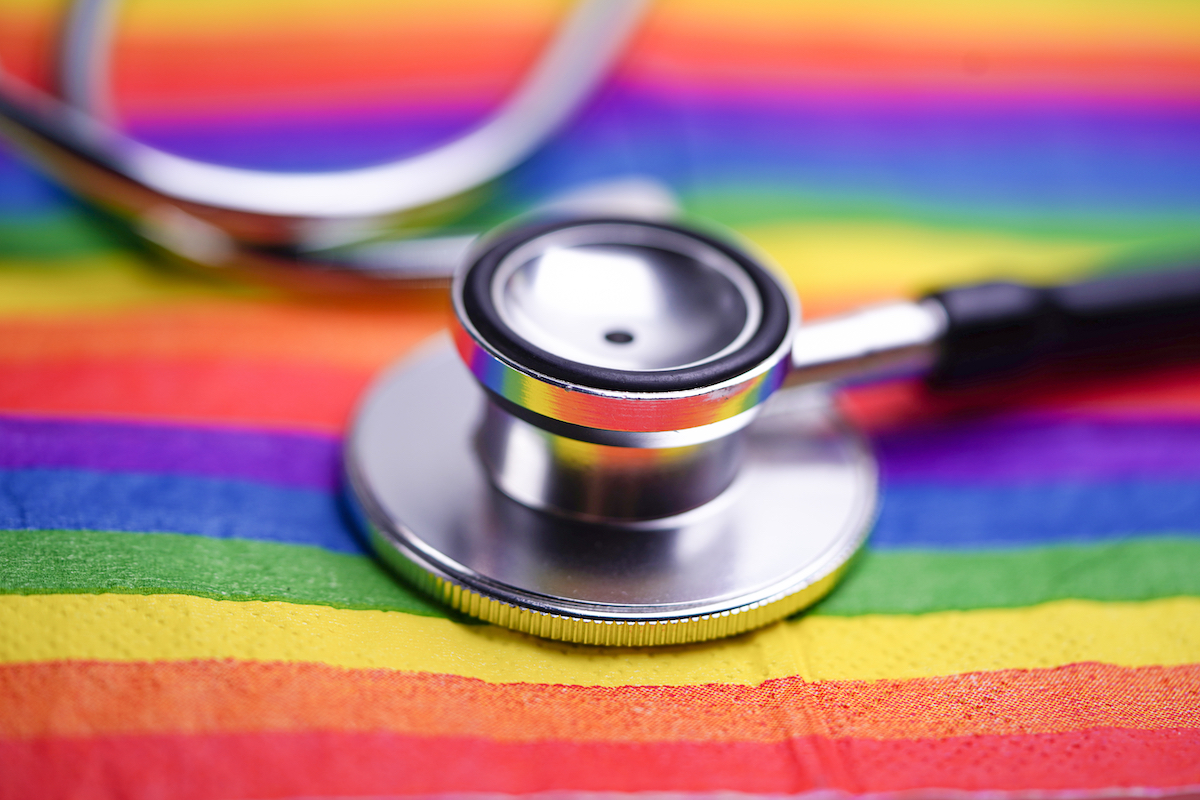 For members of the LGBTQ+ community, medical environments can often feel exclusive. However, regardless of your sexuality or gender identity, gynecological issues remain important to address.
For members of the LGBTQ+ community, medical environments can often feel exclusive. However, regardless of your sexuality or gender identity, gynecological issues remain important to address.
Tryon Medical Partners gynecology and sexual health specialist Dr. Erin Stone is here to help debunk some common myths about visiting the gynecologist as a lesbian, gay, bisexual, transgender or questioning individual.
MYTH #1: The gynecologist is for cisgender and straight people.
FACT: Historically, gynecology has been focused on care for cisgender, straight women. However, the field of gynecology is quickly refocusing on patients who identify outside of those categories. Dr. Stone notes that although there is still room for progress, gynecologists and gynecology as a field are working to be more inclusive of every kind of patient who needs gynecology care.
“At Tryon, we’ve been updating the way we practice to make everyone feel comfortable and safe in our office environment,” Dr. Stone emphasizes. “We’re considering everything from including a place for pronouns on forms to gender-neutral restrooms.”
MYTH #2: If you have a history of being sexually abused, gynecology appointments will be miserable.
FACT: The gynecologist can be an uncomfortable environment for those with a history of being sexually abused. This often comes up as a concern for LGBTQ+ patients, given the statistically higher rate of sexual abuse. Though pelvic exams are typically the primary cause of discomfort and difficulty, gynecologists are increasingly being trained on how to discuss past trauma before the physical exam even starts.
“In taking a sexual health history, we try to screen for history of abuse,” Dr. Stone notes. “I also try to be very sensitive about telling them what I’m going to do and when, making space for consent and breaks.”
MYTH #3: If you have transitioned from female to male, or only engage sexually with women, you no longer need screenings or birth control.
FACT: Dr. Stone often hears a misconception from patients who have transitioned from female to male or only have sex with women that they don’t need cancer screenings or birth control. However, if you have a uterus and cervix, you still need annual pap smears to protect against the development of cervical cancer. Similarly, if you’re having sex, regardless of sex or gender, STI (sexually transmitted infection) screenings, and often birth control, are important to continue. You can get STIs from skin-to-skin contact, oral to genital contact, or any sort of sexual engagement with sex toys.
MYTH #4: Fertility conversations are only important for straight, cisgendered couples.
FACT: Dr. Stone says that fertility conversations are just as important for lesbian and gay couples to have with their gynecologists. If you are transitioning, you may want to talk about the possibility of freezing eggs for future reproduction purposes. For lesbian couples, fertility conversations can look many different ways depending on the situation. There’s an option to use one partner’s eggs and another’s uterus while weighing several factors: partner’s history with endometriosis, polycystic ovary syndrome (PCOS) and overall general health.
MYTH #5: For lesbian couples, only the partner who gives birth may encounter issues post-birth.
FACT: Dr. Stone emphasizes that postpartum may look different for lesbian couples – the partner who gives birth is experiencing something different due to hormones and will have a unique relationship to the baby with breastfeeding. It’s important to know that even the non-birthing spouse may experience postpartum depression.
“Especially for lesbian couples, I advise communicating with their partner openly, insisting on skin-to-skin contact with the baby, and making sure bonding continues between the partners,” Dr. Stone notes. “My role as the gynecologist is to ask questions about their experience postpartum and help get them the resources they need to support them.”
MYTH #6: Mental health isn’t a part of gynecology care.
FACT: Mental health is a very important aspect of gynecology care, especially for members of the LGBTQ+ population. Dr. Stone speaks to the importance of regular gynecology appointments to screen for depression, anxiety and warning signs for serious mental distress.
“As gynecologists, it is important to be aware that 40% of transgender individuals have attempted suicide in their life,” Dr. Stone points out.
Especially for transgender patients, gynecology issues can bring up negative feelings or worsen low self-esteem. For some patients, having a period, large breasts or a higher voice can trigger shame and trauma. Raising these issues with a trusted gynecologist can open the door to a conversation about hormones that can ease discomfort and improve mood, helping patients enjoy a better sense of wellbeing.
“There are several ways to make gynecology appointments more comfortable for LGBTQ+ patients, but the prerequisite is acceptance,” says Dr. Stone. “Tryon is a judgment-free zone, where everyone is welcome and encouraged to embrace their healthiest self.”
If you have more questions about gynecology care or want to schedule an LGBTQ+ friendly gynecology appointment, learn more about the Tryon gynecology and sexual health team.

